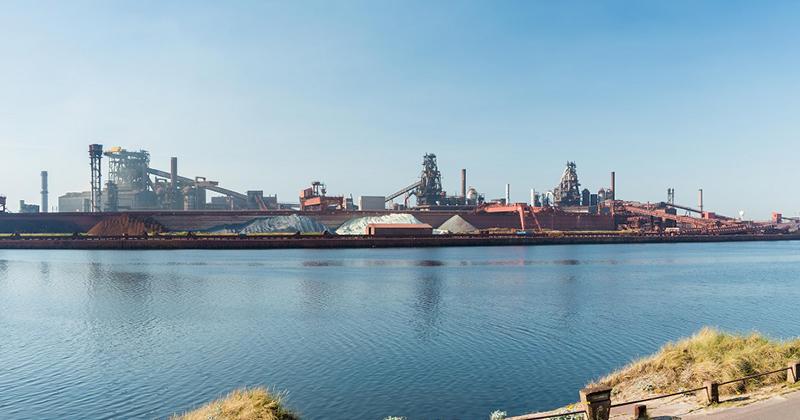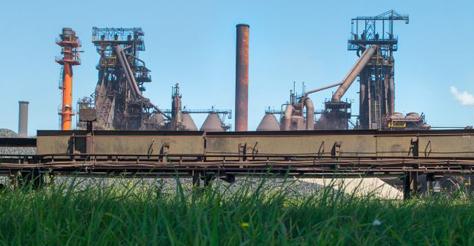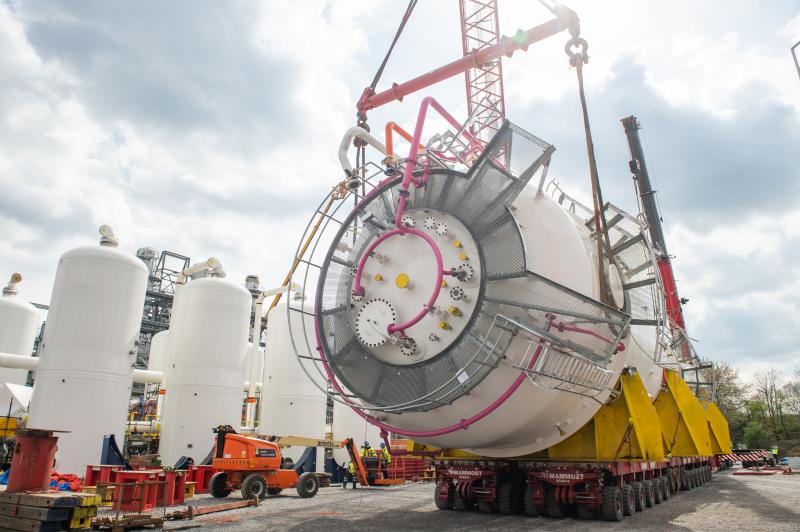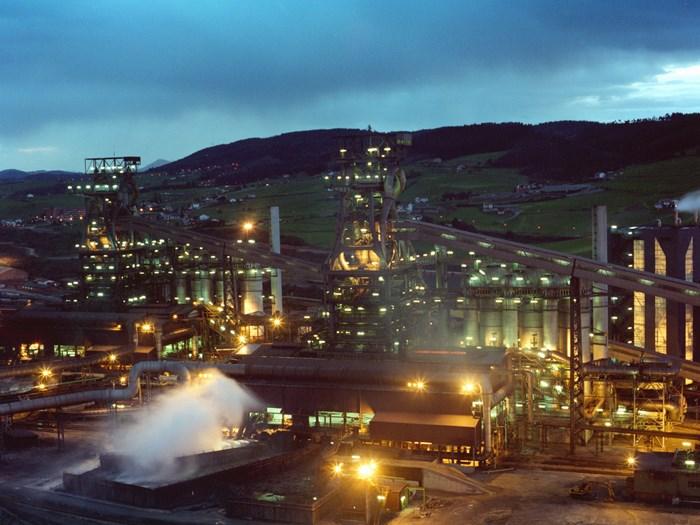Products
Product pages available in
EN - DE - FR - ES
Sustainability
News, events and stories

ArcelorMittal is undertaking major investments to emphasize the diverse range of initiatives in pursuit of our 2050 net zero goal. At the same time we are also providing our customers with solutions which help them address their own carbon reduction targets, demonstrating the important role steel has to play in a future, circular economy. Let’s zoom in at some recently announced investment initiatives.
ArcelorMittal plans major investment in German sites, to accelerate CO2 emissions reduction strategy and leverage the hydrogen grid
March 29, 2021
ArcelorMittal is planning to build a large-scale industrial plant for the direct reduction of iron ore (DRI) and electric arc furnace (EAF)-based steelmaking at its site in Bremen, as well as an innovative DRI pilot plant in addition to an electric arc furnace (EAF) in Eisenhüttenstadt, following the announcement of the planned expansion of Germany’s hydrogen infrastructure.
Using green hydrogen, up to 3.5 million tonnes of steel could be produced by the Bremen and Eisenhüttenstadt sites by 2030, with significantly lower CO2 emissions. Depending on the amount of hydrogen available, CO2 savings of more than 5 million tonnes could be possible. The technology conversion requires investments in the range of €1-1.5 billion.
Air Liquide and ArcelorMittal join forces to accelerate the decarbonization of steel production in the Dunkirk industrial basin
March 17, 2021
Air Liquide and ArcelorMittal have signed a memorandum of understanding (MoU) with the objective of implementing solutions to produce low-carbon steel in Dunkirk. The two companies are joining forces to transform the steel production process through the development of innovative solutions involving low-carbon hydrogen and CO2 capture technologies.
This partnership is the first step towards the creation of a new low-carbon hydrogen and CO2 capture technologies ecosystem in this major industrial basin. The project will reduce yearly CO2 emissions from ArcelorMittal’s steel-making facilities in Dunkirk by 2.85 Mt by 2030 and comes in addition to the initiatives already implemented by ArcelorMittal on its Dunkirk site to lower its CO2 emissions.
ArcelorMittal Gent inaugurates blast furnace of the future
March 3, 2021
ArcelorMittal Gent has officially inaugurated its blast furnace B, following a significant investment to renew the furnace, making it one of the world’s most modern and efficient blast furnaces, both in terms of productivity and CO2 emissions.
The new blast furnace was completely relined and is equipped with state-of-the-art automation systems. This investment will further enable steelmaking to be at the heart of the circular economy and help the company lower CO2 emissions and achieve its climate objectives, through more efficient fuel consumption, through the recycling of wood waste (called Torero) and through the injection of waste gases as well as end-of-life plastics. In addition, carbon rich blast furnace waste gases will be captured to be recycled into bioethanol (called Carbalyst).
In March 2021 ArcelorMittal Belgium has marked a major milestone in the construction of its pioneering Steelanol project, with the arrival and lifting of four giant bioreactors at the Gent steel plant (see picture above). The bioreactors will convert industrial gases captured during the steelmaking process into sustainable ethanol. The EUR165m Steelanol plant, the first of its kind in Europe, will produce 80 million litres of sustainable ethanol a year, equivalent to nearly half of actual Belgium’s annual demand in a market for renewable ethanol with a large growth potential. The sustainable ethanol produced at the Steelanol plant can be used as fuel for transport or as a building block for producing chemicals.
ArcelorMittal Asturias starts coke-oven gas injection for Blast Furnace B
February 17, 2021
ArcelorMittal Asturias has completed its coke-oven gas injection project for Blast Furnace B in its Gijón plant, a strategic step to reduce CO2 emissions and operational costs, thanks to lower coke consumption. Use of this innovative technology will result in a reduction in CO2 emissions of 125,000 tonnes a year.
The Asturias project is based on the idea of reducing the amount of CO2 generated in the hot metal production process, through the reuse of part of the gas generated in the coke oven batteries to partially replace the coke used as fuel in the blast furnace. With the same circular economy approach, the plant is finalizing the work that will allow coke-oven gas to be supplied to the reheating furnaces, thus reducing the consumption of natural gas and the generation of CO2. These rolling mills process steel slabs and billets from the Avilés and Gijón steel plants.
ArcelorMittal Fos-sur-Mer announces a funding of €15 million in addition to the zero-carbon commitment of €63 million
April 1, 2021
ArcelorMittal Fos-sur-Mer (France) announces a funding of €15 million, as part of the decarbonization objective of "France Relance", France's recovery plan. This funding will add on to the €63 million future investment committed by ArcelorMittal for the project "Aciers Circulaires de Fos", that will allow the site to use five times more recycled steel in its production. Works will start in the autumn of 2021 with an estimated commissioning set out for 2022 -2023.
Follow ArcelorMittal's progress towards carbon neutral steel
The decarbonization projects being rolled out at our sites in Europe first can of course be rolled out at other sites and in other regions too over the coming years.











